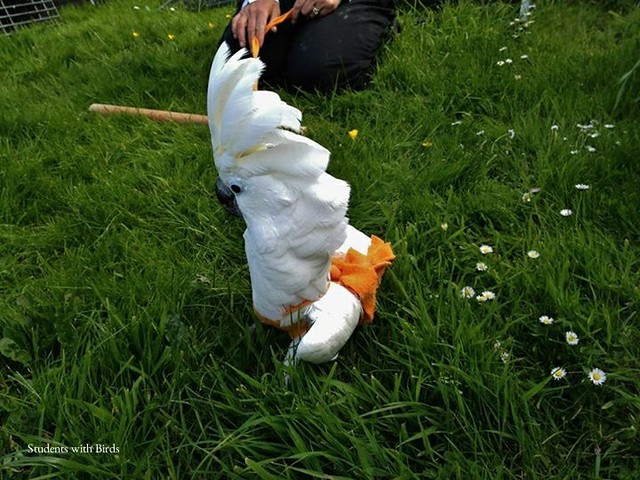
I recently read a post on the Feathered Angels Blog that sums up perfectly what I feel about the responsible breeding of parrots. It spurs us to ask ourselves if can there really be such a thing as ‘responsible’ breeding, when few birds remain in their forever homes – even those specially selected by breeders?
The author writes,
“As I look around at the thousands and thousands of homeless birds in rescues and sanctuaries, I have to wonder how anyone can ever argue that there is such a thing as responsible breeding?”
The article goes on to explore some sad truths: Our lives change. Circumstances change. The term ‘forever home’ is an illusion, as, for these long-lived creatures, being passed from home to home is a reality. Very few people can actually commit to twenty to eighty-odd years as a virtual slave. Many of the birds in rescues, she points out, were bred by responsible breeders.
Personally, I agree wholeheartedly with those words. Yet I’m also learning to choose my battles.
(I feel I should clarify here that I am referring to the breeding of parrots as pets, for profit, not for conservational efforts.)
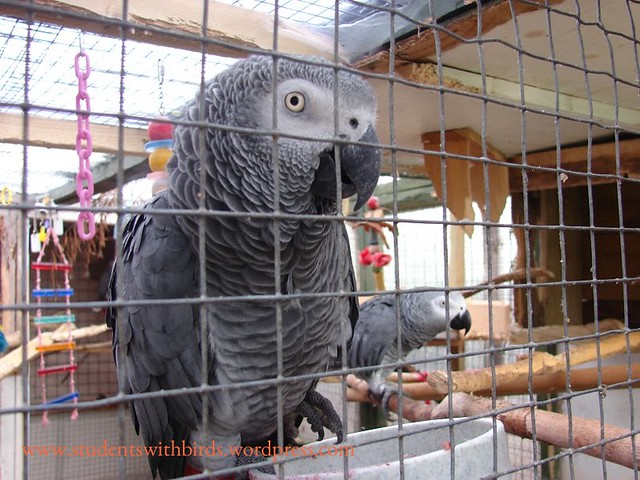
My stance on owning parrots is this: I don’t believe that birds should be pets – and if I could, I would stop all breeding. The parrots who still exist could be adopted into loving homes. No bird would ever again be removed from the wild. These are all wild animals residing in human homes, and need to be treated as such, I feel.
Except that isn’t how life works. It will never work that way, either, and I get that. Our captive parrots desperately need us. They are here to stay, and the best thing we can do is educate future and current owners, with the aim of improving birds’ lives.
Argue it how you want, there is a demand for parrots as pets. People can either obtain reliable information on how to choose a good breeder or pet shop, or they can unwittingly turn to places that mistreat their animals and fail to set them up for the best possible life… or worse. Potential buyers could accidentally obtain a bird from an illegal wild-caught scheme.
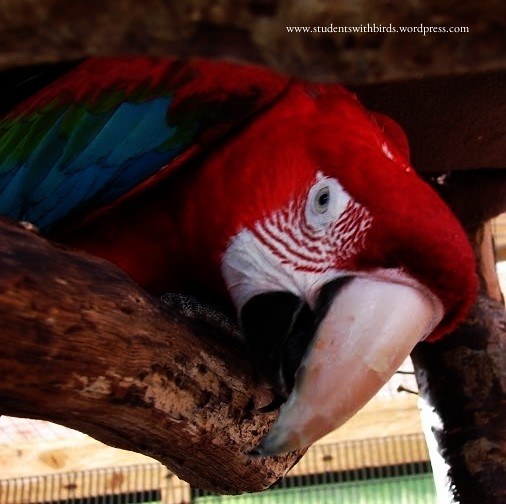
Where I can, I will always encourage people to adopt. After all, adoption isn’t always rescue; sometimes it is simply giving a home to a bird whose family couldn’t keep up with the demands and expense of a parrot, for one reason or another. I know also that when it comes to this process of re-homing and rescue – which admittedly can be a difficult path – not everyone identifies themselves as able to provide for a bird with ‘baggage’ from previous homes.
In an ideal situation, these people might say, ‘I will get a dog or cat instead.’ Looking honestly at how the world works, however, they will turn to a shop or breeder. Better to choose a reputable source than the alternative.
As an example, Mishka, our cockatiel, was purchased from a pet shop that kept its birds in less than sanitary conditions. She never recovered from that. We returned to purchase food for her at a later date, and saw four cockatiels crammed into the too-small, grimy cage she’d occupied previously. Our money furthered their business.
I don’t feel that pet shops are an ideal place for birds – being prey animals, it is a often a stressful environment for them. But there are decent pet shops out there, and there are, well, the opposite.
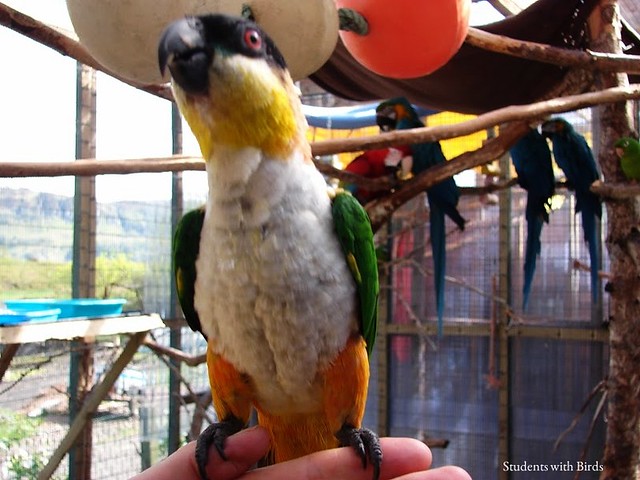
So what can we do to make a difference right now? Avoid breeders and pet shops who don’t educate potential owners, and/or who keep their pets in unsuitable conditions. BUT support the places who treat their animals well, as this is an endlessly better alternative to keeping those other establishments open.
Continue to educate ourselves and those around us. Let others know about the trouble and stress that comes with a parrot – it isn’t all joy and smiles, after all, although they have their moments! And don’t forget that things are always changing in the bird world as we discover new things. It’s okay to change your own mind, too. And don’t forget to encourage others to adopt.
Donate to places like Phoenix Landing U.S.A. or the Island Parrot Sanctuary in Scotland. These are the places that strive to make a difference. Donation doesn’t have to be monetary; rescues and other organisations need and appreciate toys, perches, food, or your time. Volunteering is a wonderful way to make an impact.
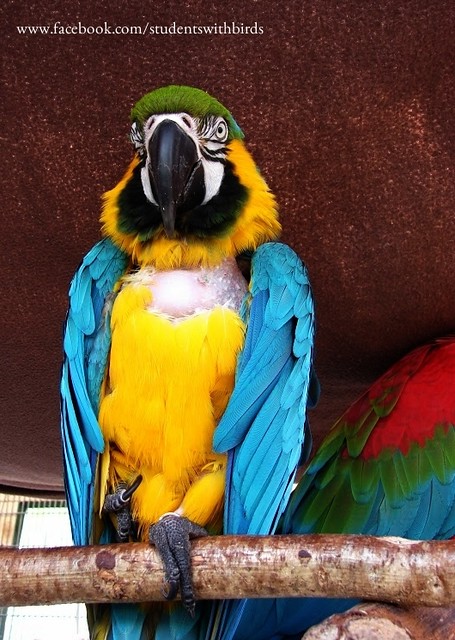
Adopt, if you can. There are thousands upon thousands of homeless parrots out there who are in need of a home, and not all of them are the phobic rescue cases that people envision. Some have just been the victim of time. When you live nearly as long as your humans, life can be tough.
And, finally, don’t be afraid to speak up. One voice can trigger the change needed. One voice can spur a chain of thoughts that leads to action. One voice can help many parrots.
Our parrots need us.


The only responsible breeding is the breeding done in conjunction with conservation groups. I believe breeders should be required, by law, to work with these groups in breeding threatened and endangered species to be placed back in the wild. Anyone who breeds to make a profit is not welcome in my world.
On Facebook, the woman who runs Texts from Parrots did a little experiment where she emailed a bunch of breeders about what they had available. The vast majority responded with “how much are you looking to spend?” It’s a basement industry run by people with a basement mindset. Sounds harsh, but there it is.
LikeLike
Good point! I added a little clarification in, as breeding for conservation is so important.
That’s a scary thought, in its own way, and I agree. I think many breeders are simply misguided? Or maybe I just wish it, I dunno… I feel like a great many breeders do truly love the animals, but perhaps don’t think long-term. It can often be about profit, for sure. It makes me sad to think that birds in wonderful homes have no guarantee of living there forever, even my own, potentially.
Either way, I make sure I have current info up so potential owners can find a decent breeder, as I’d far rather that than perpetuate somewhere like, say, where we bought our cockatiel.
Thanks for stopping by!
LikeLike
I don’t think parrots should be kept as pets. I own 7 parrots, most are rescues and over the years have helped them through difficult times. All of mine have been hand reared and they find it hard to know if they are a bird or human? Most of their problems are hormonal and they will pluck or snip feathers with frustration. I feel so sorry for them but have to make the best out of a bad situation. I never realised this when I first purchased a parrot, you have to live with them to realise their needs , we need to try and educate people into how hard it is to care for a parrot.
They should only be bred for conservation purposes and I do hope a law like this will be passed in my life time.
LikeLike
You’re a wonderful owner, Alison, and I admire you. Your birds are very happy and healthy because you really do make the best of it. Just like you say, I think it takes having a parrot in your home to understand what they will be like. I read all about birds before I brought Mishka home, and yet nothing could have prepared me for THAT, haha.
I hope a law is passed, too, with all my heart – but I don’t see it happening. I don’t think that needy parrots are viewed as a priority, even though they are (in my mind) just about equal to people in need. I guess their beauty and intelligence is their own downfall.
LikeLike
I’ve enjoyed wild birds for years. I landscape my yard with birds and other wildlife in mind, I have nest boxes, bird feeders and water in my yard, I participate in birds counts such as Project FeederWatch and Audubon’s Christmas bird count, and I’m a volunteer bird monitor for the forest preserve. Observing them tells you they don’t belong in a cage or a home.
I agree with you, birds shouldn’t be pets. In reality birds make terrible ‘pets’. I knew I would never purchase a bird so if one came to live with me it would be a rescue. Last year due to a bird hoarding situation in two local area homes, the shelter had an abundance of birds for adoption. Several hundred. So I offered to take a bird. It took almost a year for Charlie the lovebird to acclimate, and her conditions weren’t that bad – she didn’t come from the hoarder, she was given up because the owner ‘didn’t have time’ for her.
I knew a rescue bird would need a lot of extra work, I just didn’t know how much. Education is key. And getting birds out of big box and general pet shops. I feel so bad for the birds when I see them in their tiny cages. But they wouldn’t be there if the stores were unable to find buyers. So yeah, education, because I don’t see any laws being proposed any time soon.
LikeLike
I love wild birds, too – it’s great that you participate in the watches. I think all owners should stop and observe the wild flocks. It tells us – despite the difference in species – a lot about our own pets, I think. Plus they’re just beautiful to see.
I didn’t really know how much trouble/work parrots would bring, either, just like you said – not that I mind, though. Gaining the trust of a parrot is a time-consuming, delicate process, and it takes a saintlike amount of patience! Charlie is a really lucky girl, and I definitely know what you mean about the pet shops and how they are just…sad. Nor do I see laws being proposed, much as I wish they would happen. I simply hate the idea of parrots being bought and sold like that, because to me, I think of them as more than commodities, objects. Thanks for stopping by!
LikeLike
Reblogged this on Doggalicious Rhinestone Doggy and commented:
I would love to adopt a bird! Recently tried but it turned out to be a scam! So even adopting poses a challenge.
LikeLike
I am a student from Australia wanting to get a cockatiel 🙂 I was planning on getting a 10-12 week old co-parented boy or girl but after reading this article I a more inclined to look at the enormous amount of year old pet cockatiels looking for a home. My only concern is that he won’t bond with my as well as if I buy him as a baby? We have had dogs from puppies and also ones from shelters, and the ones we have had as puppies are more ‘molded’ with our lifestyle and closer to us. Do you think it is the same case with birds?
LikeLike
I find that I’ve bonded equally well with the bird I had as a baby, and the birds I’ve adopted as adults. It may take somewhat longer to bond with an adult, depending on their life experiences, but not always! I petsit a cockatiel sometimes who attaches himself to me like glue. Whereas the baby ‘tiel I owned myself, well, she hated me for the longest time – and really only ever tolerated me.
As long as you are the bearer of food and treats, parrots will all typically come round! Obviously I’m pro-adoption, but if you do decide on a baby, make sure your breeder has a clean set up, not too crowded, not too many breeding pairs. And co-parented will be the best if you can indeed find someone!
LikeLike
For good reason (which I won’t explain here) I decided to get a parrot.
I tried looking for one to adopt or rescue as I’ve heard that there are thousands of homeless birds out there. Unfortunately, I couldn’t find any within 2 hours or less driving distance. Also the sites I found had such an extensive screening process that it was prohibitive, not to mention very high “fees.”
It was almost as difficult as adopting a human child! (Which I did a few years ago)
Anyways, I finally resorted to buying one from a reputable breeder that takes good care of his birds.
I know a family that has about 12 birds (I lost count) and is letting one pair breed as this is exciting for the 4 children to watch. They don’t seem to think there’s anything wrong with that. As far as I can tell they take good care of all the birds and they get attention. But somehow this seems wrong. What do you all think?
LikeLike
The decline in the number of parrots in India, as in many other parts of the world, can be attributed to various factors, including habitat loss, illegal wildlife trade, and pollution. Here are some key reasons for the decrease in the parrot population in India:
Habitat Loss: Urbanization, agricultural expansion, and deforestation have led to significant loss and fragmentation of natural habitats. Parrots rely on specific ecosystems for nesting, feeding, and breeding, and the destruction of these habitats can result in a decline in their populations.
Illegal Wildlife Trade: The illegal trade of parrots for the pet market has been a significant threat to their populations. Poaching and trafficking of parrots, often for their vibrant plumage or as exotic pets, can lead to population declines. This trade is not only detrimental to the targeted species but also has broader ecological impacts.
Capture for the Pet Trade: The demand for parrots as pets, both within India and internationally, has contributed to the decline of wild populations. Capturing birds for the pet trade can disrupt breeding patterns, decrease reproductive success, and lead to population declines.
Climate Change: Changes in climate patterns can affect the availability of food and water sources for parrots. Altered weather conditions may impact the timing of breeding and migration, affecting the overall health and reproductive success of populations.
Pollution: Environmental pollution, including air and water pollution, can have adverse effects on parrots and their habitats. Contaminants in food sources and nesting sites can impact the health and survival of parrot populations.
Competition with Invasive Species: The introduction of invasive species can lead to increased competition for resources, nesting sites, and food. Invasive species may also bring new diseases that can affect native parrot populations.
Conservation efforts are crucial to addressing these threats and ensuring the survival of parrot species in India. This involves habitat protection and restoration, enforcement of wildlife protection laws, education and awareness programs, and initiatives to combat illegal wildlife trade. Collaboration between governmental organizations, conservation groups, and local communities is essential to implement effective measures for the conservation of parrots and their ecosystems.
https://www.talkytails.com/5-most-exotic-breeds-of-a-parrot/
LikeLike